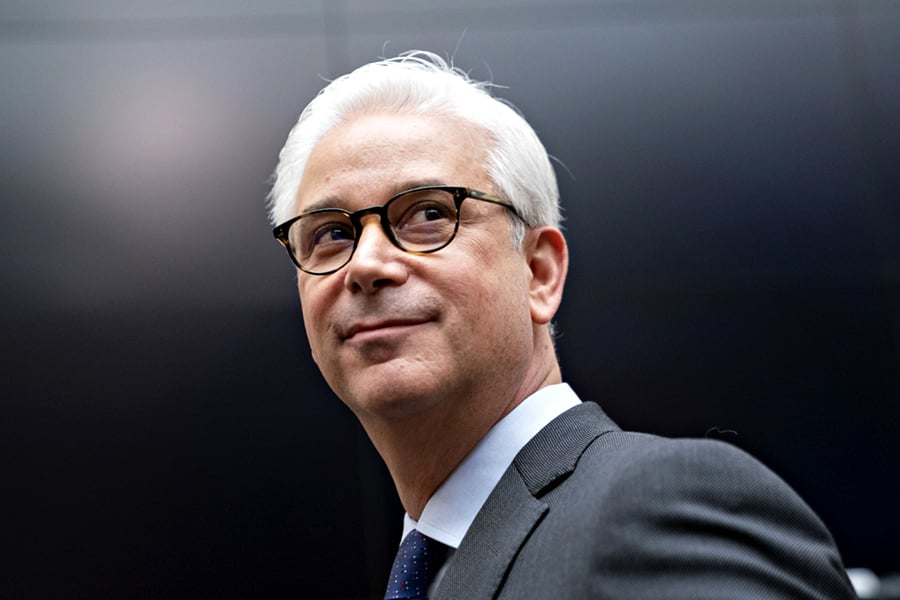

Wells Fargo & Co. lifted Chief Executive Charlie Scharf’s pay to $29 million for 2023, a year in which profit grew and the bank’s shares outperformed those of rivals.
Scharf’s compensation package, up 18 percent from the $24.5 million he earned for 2022, included a $2.5 million base salary and $26.5 million of cash and long-term equity awards, according to a regulatory filing.
“In reaching this decision, the board noted Mr. Scharf’s strong leadership in improving the financial performance of the company including driving increased efficiency and capital return to shareholders,” San Francisco-based Wells Fargo said in the filing. The bank also said that, as with last year, Scharf asked for “negative discretion” because of the work still needed to remake the firm. He otherwise would’ve earned $30.3 million.
Shares of Wells Fargo rose 19 percent last year, making it the third-best performer in the 24-member KBW Bank Index. The firm’s full-year net income climbed 40 percent in 2023, boosted by the Federal Reserve’s rate hikes, while expenses fell almost 3 percent, a sign of progress for Scharf’s cost-cutting efforts.
Scharf, 58, took the reins of Wells Fargo in 2019 with the mission of moving it past a series of scandals. The firm still has multiple outstanding regulatory issues, including a Fed-imposed asset cap limiting the firm to its size at the end of 2017.
Wells Fargo is the latest big bank to announce CEO pay this month. Last week, JPMorgan Chase & Co. said it awarded longtime CEO Jamie Dimon $36 million for last year, up 4.3 percent from a year earlier. Morgan Stanley lifted James Gorman’s pay 17 percent to $37 million for his final year as CEO.

Integrated Partners is adding a mother-son tandem to its network in Missouri as Kestra onboards a father-son advisor duo from UBS.

Futures indicate stocks will build on Tuesday's rally.

Cost of living still tops concerns about negative impacts on personal finances

Financial advisors remain vital allies even as DIY investing grows

A trade deal would mean significant cut in tariffs but 'it wont be zero'.
RIAs face rising regulatory pressure in 2025. Forward-looking firms are responding with embedded technology, not more paperwork.
As inheritances are set to reshape client portfolios and next-gen heirs demand digital-first experiences, firms are retooling their wealth tech stacks and succession models in real time.
